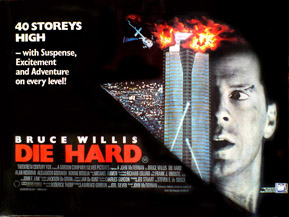|
|
A-List: FranchisesBy Josh SpiegelMay 7, 2009
Harry Potter I'm making a fervent wish here that I'm proven right by this choice. Though the wildly popular Harry Potter franchise hasn't yet finished its run (with the sixth film coming out this July, and two final films to follow in 2010 and 2011), each of the films have a rare and unique quality: they're not only all good films, but they're all better than their predecessors. Though people do give a lot of hate to the series' first director, Chris Columbus, for making the films too faithful and rigid to the source material, his second and final time behind the camera, Harry Potter and the Chamber of Secrets, was a vast improvement in every way from the first film. The major leap into greatness, though, was made by Alfonso Cuaron, who helmed the third film, Harry Potter and the Prisoner of Azkaban. Though it kept some plotlines out and was shorter than the other films, Prisoner of Azkaban was strongly acted, colorful, and the direction was more fluid and open than anyone could have imagined. The following films improved even further, giving the lead characters a dose of realism that the fantastical story (about a boy wizard, but you knew that, didn't you?) couldn't automatically lend. David Yates, who took the reins for the fifth film and is behind the camera for the remaining installments, made Harry Potter and the Order of the Phoenix menacing, dark, and creepy while also having enough lightness so as to not damper everyone's mood. He also made the longest book in the Harry Potter series into the shortest, yet freshest film, which is no small feat. As a big fan, I can only hope that Yates and company will make the rest of the films as memorable and awesome as those that followed it. If the trend stays the same, I and the many other Harry Potter fans have nothing to worry about.
|

|
|
|

|
Friday, November 1, 2024
© 2024 Box Office Prophets, a division of One Of Us, Inc.


